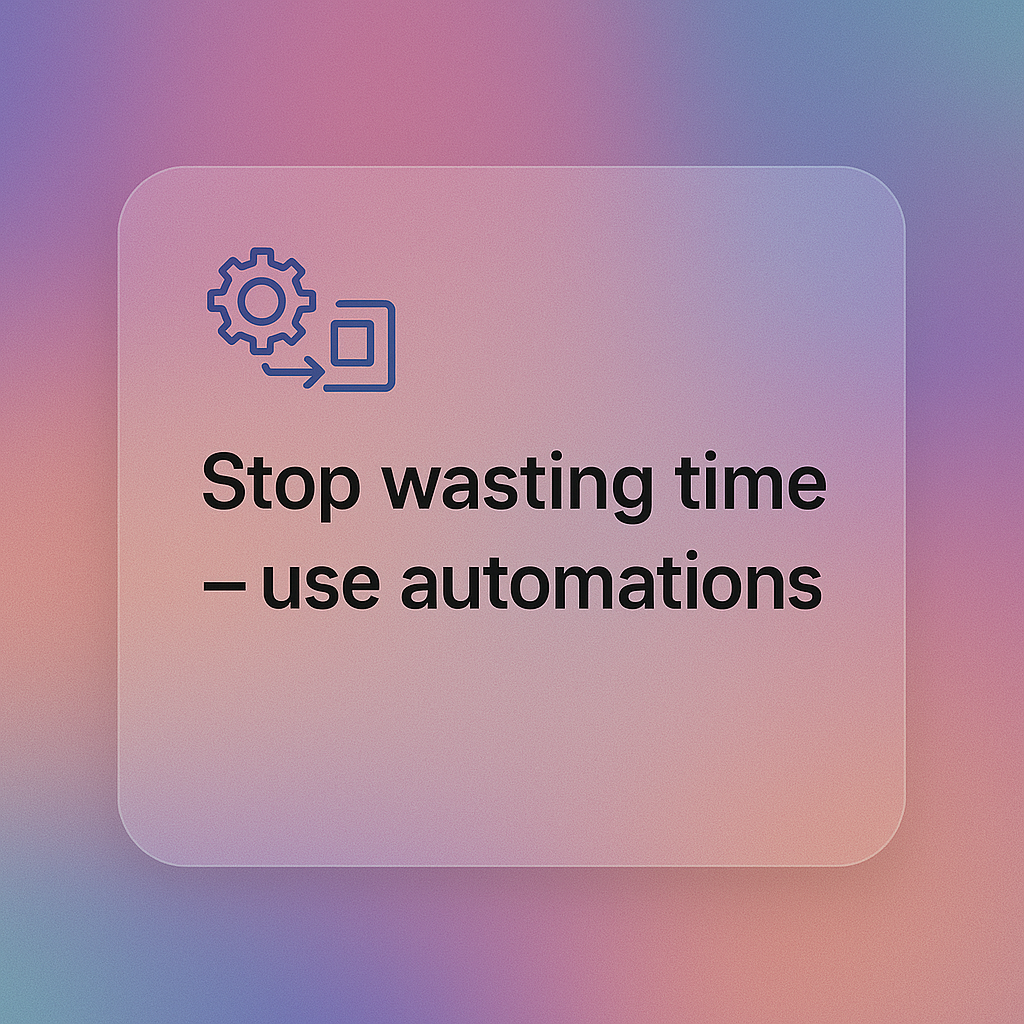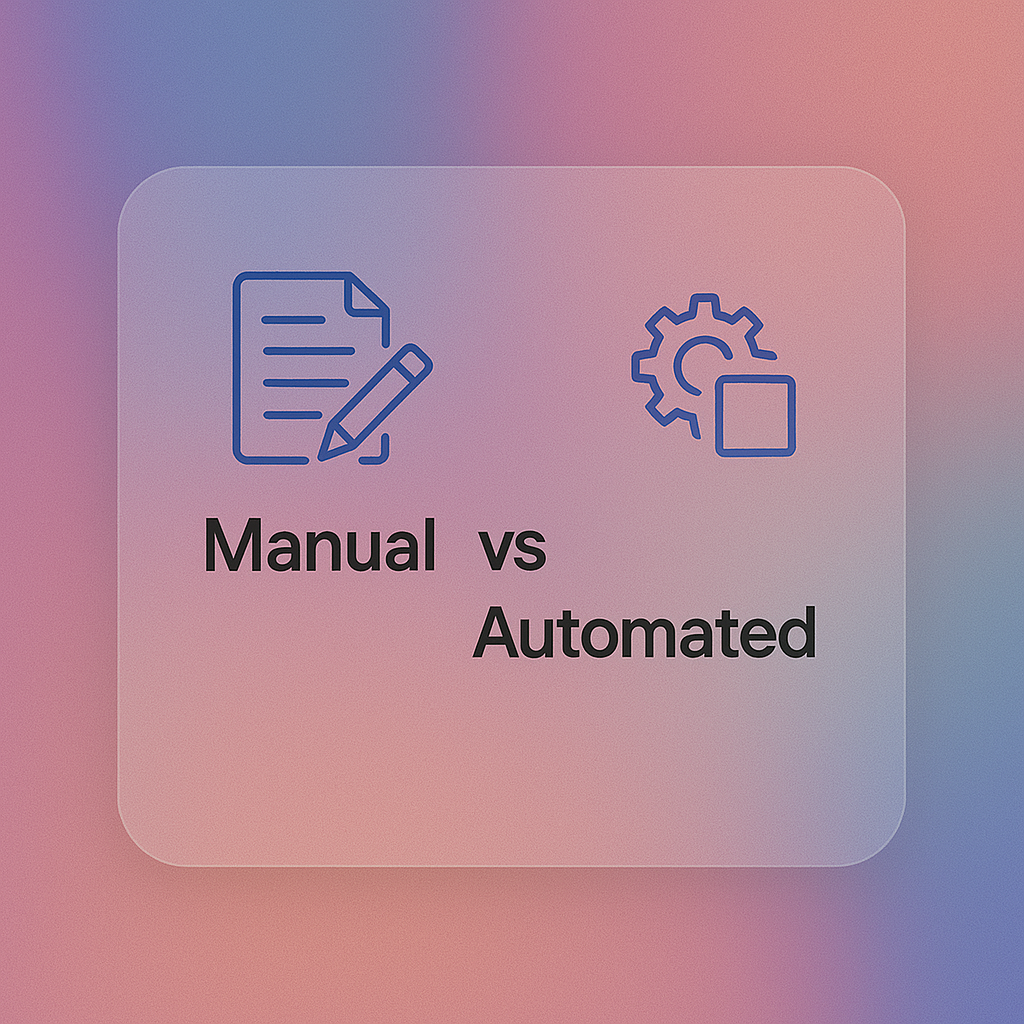
Freelancers and solo professionals are reimagining how they handle daily business tasks with the help of new digital tools. Up to 30 percent of global work hours could be automated by 2030, according to McKinsey. That sounds like machines are taking over and making things cold and robotic. The surprise is automation gives freelancers more time for creativity and real connections by taking busywork off their plates.
Table of Contents
- Defining Business Automation: Concepts And Scope
- The Importance Of Business Automation In Today’s Economy
- How Business Automation Works: Systems And Tools Explained
- Key Concepts And Technologies Behind Business Automation
- Real-World Applications Of Business Automation For Solopreneurs
Quick Summary
| Takeaway | Explanation |
|---|---|
| Automate repetitive tasks | Focus on automating client communication, invoicing, and scheduling to save time. |
| Use technology for efficiency | Leverage intelligent tools to streamline workflows and reduce manual errors. |
| Focus on high-value work | Free up mental energy for creative projects by minimizing administrative tasks. |
| Maintain professional standards | Use automated systems to ensure timely follow-ups and accurate invoicing. |
| Adapt to economic changes | Embrace automation to remain agile and competitive in a rapidly changing marketplace. |
Defining Business Automation: Concepts and Scope
Business automation represents a strategic approach to transforming how freelancers and solopreneurs manage repetitive operational tasks through intelligent technological solutions. At its core, business automation involves using digital tools and software to execute routine business processes with minimal human intervention.
Understanding the Fundamental Framework
Business automation goes beyond simple task completion. It is a comprehensive system designed to streamline workflows, reduce manual errors, and create efficiency across various operational domains. According to research from the National Center for Biotechnology Information, digital technologies can automate complex processes that extend far beyond individual tasks, encompassing entire workflow management and decision support systems.
For freelancers, business automation translates into practical advantages that directly impact productivity and professional growth:
- Reducing time spent on administrative tasks
- Minimizing human error in repetitive processes
- Creating consistent, predictable business operations
- Freeing up mental energy for high-value creative work
Strategic Implementation for Solo Professionals
Successful business automation requires a strategic approach. Freelancers must identify which specific tasks consume significant time and can be effectively automated. These typically include:
- Client communication and follow-ups
- Appointment scheduling
- Invoice generation and payment tracking
- Email marketing and client onboarding sequences
By systematically integrating automation tools for solo professionals, independent workers can transform their operational efficiency. The goal is not to replace human interaction but to create intelligent systems that support and enhance professional capabilities.
Ultimately, business automation empowers freelancers to work smarter, not harder.
To clarify the main types of business tasks freelancers can automate, here is a table outlining core automation categories and examples of each.
| Automation Category | Description | Common Examples |
|---|---|---|
| Client Communication | Automates interaction and follow-ups with clients | Automated emails, reminders, onboarding |
| Scheduling and Appointments | Manages appointments and reminders automatically | Online booking, calendar syncing |
| Invoicing and Payments | Handles billing, payments, and financial tracking | Invoice generation, payment reminders |
| Marketing and Outreach | Runs promotional campaigns and nurtures leads | Scheduled email campaigns, segmentation |
| Workflow and Task Management | Organizes daily operational or project workflows | Task automation, project status updates |
| Financial Reporting and Documentation | Tracks expenses, income, and tax documentation | Automated expense tracking, report creation |
| It provides a technological foundation that allows solo professionals to scale their services, maintain high-quality standards, and focus on delivering exceptional value to their clients. |
The Importance of Business Automation in Today’s Economy
In an increasingly digital world, business automation has transitioned from a competitive advantage to a fundamental necessity for freelancers and solo professionals seeking sustainable growth. The economic landscape now demands agility, efficiency, and strategic technological integration.
Economic Transformation and Productivity
The global economic ecosystem is rapidly evolving, with technology playing a pivotal role in redefining work structures. According to research from McKinsey Global Institute, up to 30% of global work hours could be automated by 2030, signaling a profound shift in how professionals operate.
Key economic implications of business automation include:
- Reducing operational costs
- Increasing scalability for solo businesses
- Creating more predictable revenue streams
- Enabling faster response to market changes
Competitive Advantage for Independent Professionals
Business automation provides independent professionals with powerful tools to compete effectively in a crowded marketplace. By leveraging intelligent automation solutions for solopreneurs, freelancers can differentiate themselves through superior efficiency and professional presentation.
The most successful solo professionals will be those who view automation not as a replacement for human skills, but as a strategic amplifier of their unique capabilities. Automation allows freelancers to focus on high-value creative work, client relationships, and strategic business development.
Moreover, automation enables solo professionals to maintain professional standards consistently. Automated systems ensure timely communications, accurate invoicing, seamless scheduling, and professional follow-ups that might otherwise be challenging to manage manually.
Ultimately, business automation represents more than a technological trend. It is a fundamental reimagining of how independent professionals can build resilient, scalable, and competitive businesses in an increasingly digital global economy.
How Business Automation Works: Systems and Tools Explained
Business automation represents a sophisticated technological ecosystem designed to transform how solo professionals manage their operational workflows. By integrating intelligent software systems, freelancers can create seamless, efficient processes that minimize manual intervention and maximize productivity.
Core Technological Mechanisms
At its fundamental level, business automation operates through interconnected digital platforms that communicate and execute predefined tasks automatically. According to research from the National Institutes of Health, these systems leverage cloud integration, workflow management tools, and intelligent scheduling platforms to streamline business processes.
Key technological components include:
- Trigger-based workflow systems
- Cloud-based integration platforms
- AI-powered decision making algorithms
- Automated communication protocols
Practical Implementation for Freelancers
Effective business automation requires strategic tool selection and integration. Freelancers must identify specific operational bottlenecks and select automation solutions tailored for independent professionals that address their unique workflow requirements.
Typical automation scenarios for solo professionals encompass:
- Automatic client onboarding sequences
- Scheduled email marketing campaigns
- Invoice generation and payment tracking
- Appointment scheduling and reminder systems
The true power of business automation lies not in replacing human interaction, but in creating intelligent systems that handle repetitive tasks.
Here is a table summarizing the key technological components and their roles in business automation for solo professionals.
| Technology Component | Purpose | Benefit for Freelancers |
|---|---|---|
| Trigger-Based Workflow Systems | Initiate actions based on defined events or criteria | Saves prep time, ensures process consistency |
| Cloud-Based Integration Platforms | Connects multiple apps and data sources seamlessly | Centralizes information and tasks |
| AI-Powered Decision Making Algorithms | Automates decisions using data and set rules | Reduces errors, accelerates workflows |
| Automated Communication Protocols | Sends messages, reminders, and notifications automatically | Maintains professional, timely communication |
| These tools allow freelancers to redirect their energy toward high-value creative work, client relationship building, and strategic business development. |
Modern automation platforms utilize advanced technologies like machine learning and artificial intelligence to continually optimize processes.
By analyzing historical data and performance metrics, these systems can progressively refine their operational efficiency, providing freelancers with increasingly sophisticated support mechanisms.
Key Concepts and Technologies Behind Business Automation
Business automation represents a complex technological framework integrating multiple advanced digital strategies designed to transform how professionals manage operational workflows. Understanding the underlying technologies provides insight into how these sophisticated systems create remarkable efficiency for independent workers.
Foundational Technological Architecture
The technological infrastructure of business automation relies on interconnected digital systems that communicate and execute tasks with precision. According to Robotic Process Automation research, these technologies enable rapid design, testing, and deployment of automated processes that dramatically reduce manual administrative work.
Critical technological foundations include:
- Artificial intelligence algorithms
- Machine learning predictive models
- Cloud-based integration platforms
- Intelligent workflow management systems
Operational Mechanisms and Intelligence
Modern business automation transcends simple task replacement by creating intelligent, adaptive systems. By leveraging advanced automation platforms for solopreneurs, freelancers can develop robust technological ecosystems that learn and optimize themselves continuously.
Key operational capabilities encompass:
- Automatic data collection and analysis
- Predictive task scheduling
- Intelligent communication routing
- Performance metric tracking and reporting
These technologies work synergistically to create a comprehensive automation environment. Machine learning algorithms analyze historical performance data, identifying patterns and opportunities for process improvement. Artificial intelligence enables systems to make increasingly sophisticated decisions, reducing manual intervention and minimizing potential human errors.
Ultimately, business automation technologies represent more than just tools. They are intelligent partners that enable freelancers to focus on high-value creative work while maintaining consistent, professional operational standards.

Real-World Applications of Business Automation for Solopreneurs
Business automation transforms how independent professionals manage their operational workflows, offering strategic solutions that dramatically improve efficiency and professional capabilities. By implementing targeted technological strategies, solopreneurs can create sophisticated systems that handle complex business processes with minimal manual intervention.
Client Management and Communication Automation
Client relationship management represents a critical domain where automation delivers substantial benefits. According to research on freelancing business scaling, solopreneurs can leverage automation across multiple communication and engagement touchpoints.
Key client management automation scenarios include:
- Automated welcome and onboarding sequences
- Personalized follow-up email campaigns
- Scheduling and appointment reminder systems
- Client feedback and satisfaction tracking
Financial and Operational Workflow Optimization
Financial processes demand precision and consistency, making them ideal candidates for automation. By exploring tools designed for independent professionals, solopreneurs can create robust systems that handle invoicing, payment tracking, and financial reporting with exceptional accuracy.
Essential financial and operational automation capabilities encompass:
- Automatic invoice generation
- Payment tracking and reminder systems
- Expense categorization and reporting
- Tax preparation documentation management
Automation technologies enable solopreneurs to transcend traditional operational limitations. These intelligent systems not only reduce administrative burden but also provide sophisticated insights that support strategic business decisions. By eliminating repetitive tasks, independent professionals can redirect their energy toward high-value creative work, client relationship building, and business growth strategies.
Ultimately, business automation represents a transformative approach that empowers solopreneurs to operate with the efficiency of larger organizations while maintaining the agility and personal touch of independent professional practice.

Unlock Effortless Business Automation for Solo Success
If you are feeling overwhelmed by repetitive administrative tasks and want to reclaim your time for high-value work, you are not alone. As highlighted in the article, many freelancers hit a ceiling with manual processes that hinder growth, drain creativity, and introduce avoidable errors. Streamlining client management, payment tracking, and marketing with smart automation is the key to breaking through these limitations and scaling your business while staying focused on what you do best.
Ready to transform your workflow and work smarter, not harder? Try Fluum.ai, the all-in-one, AI-powered platform designed just for solopreneurs. Consolidate your sales funnels, booking, payments, and communications into one intuitive application. Unlike other tools, Fluum.ai removes the tech headaches so you can grow with confidence and simplicity. Visit our pricing page now to explore how you can automate your business today and never miss another opportunity.
Frequently Asked Questions
What is business automation for freelancers?
Business automation for freelancers is the strategic use of digital tools and software to automate repetitive operational tasks, reducing manual effort and increasing efficiency in various business processes.
How can freelancers benefit from business automation?
Freelancers can benefit from business automation by reducing time spent on administrative tasks, minimizing human errors, creating consistent operations, and freeing up mental energy for more creative and high-value work.
What types of tasks can freelancers automate?
Freelancers can automate tasks such as client communication, appointment scheduling, invoice generation, payment tracking, email marketing, and onboarding processes to enhance operational efficiency.
What technologies are commonly used in business automation?
Common technologies used in business automation include workflow management tools, cloud-based integration platforms, AI-powered decision-making algorithms, and automated communication protocols to streamline operations.
